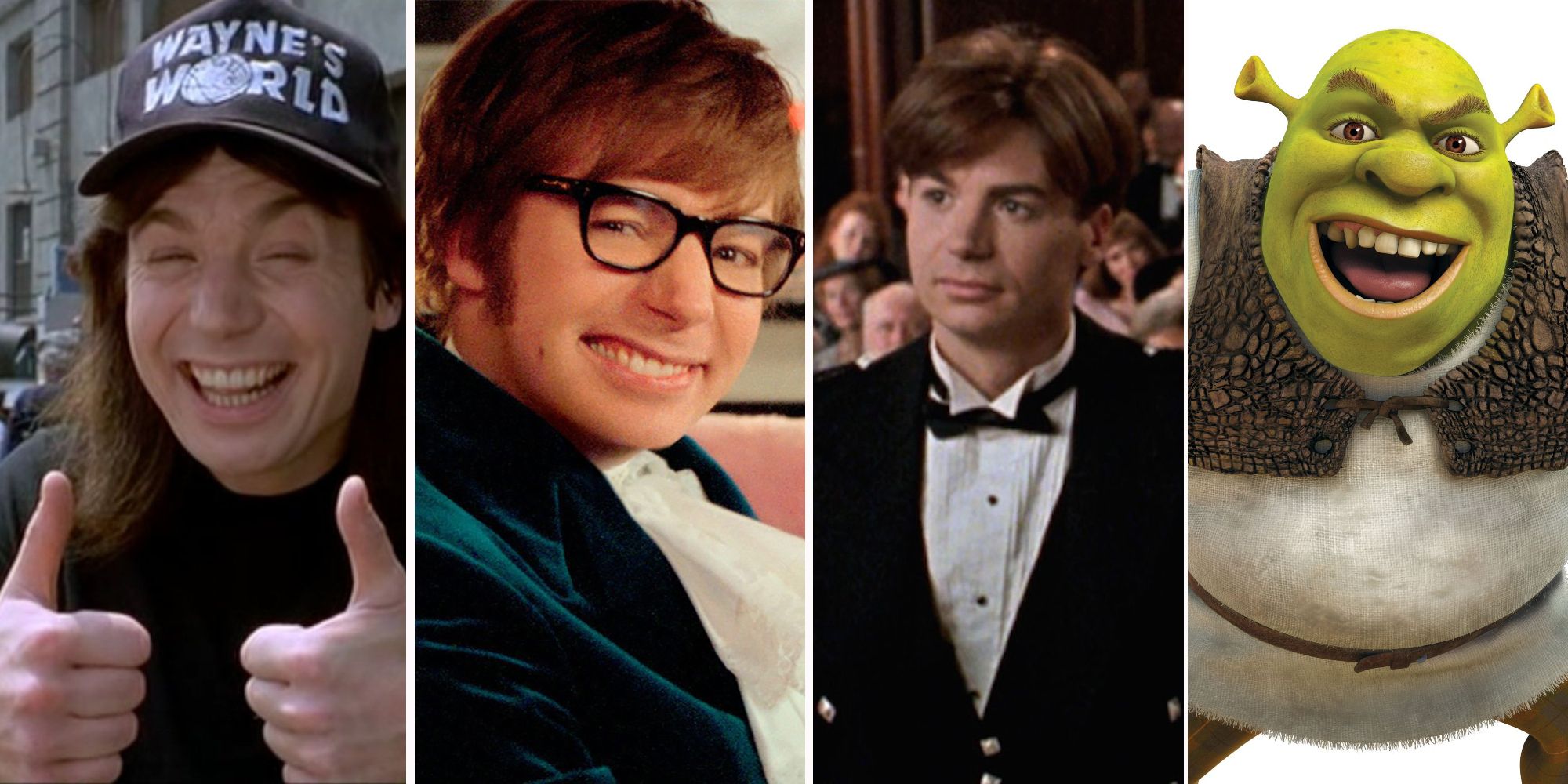
Here are all of Mike Myers' movies ranked from worst to best. The former SNL alum rose to fame during the early 1990s, thanks to his catch phrase-laden sense of humor and repertoire of hit sketch comedy characters such as Wayne Campbell, Dieter from Sprockets, and Coffee Talk host, Linda Richman.
After establishing his film career with Wayne’s World, Myers began to experiment with new characters as well as the occasional small role in dramatic films such as 54 and Pete’s Meteor. It was clearly comedy where his strengths lay, however, and his creation of the silly 1960-era spy known as Austin Powers led to a franchise that ruled the latter half of the 90s and early 2000s. From there, Myers found his way into animation, voicing the rough around the edges, yet loveable, ogre Shrek in Dreamworks’ wildly successful franchise of the same name.
Today a quick glance at Myers’ acting resume reveals a star whose later years are balanced between straight-to-video Shrek spin offs and the odd cameo in respected films like Inglourious Basterds and Bohemian Rhapsody. Still, Myers’ body of work is worth exploring, and here are only the films where Myers is the lead character ranked.
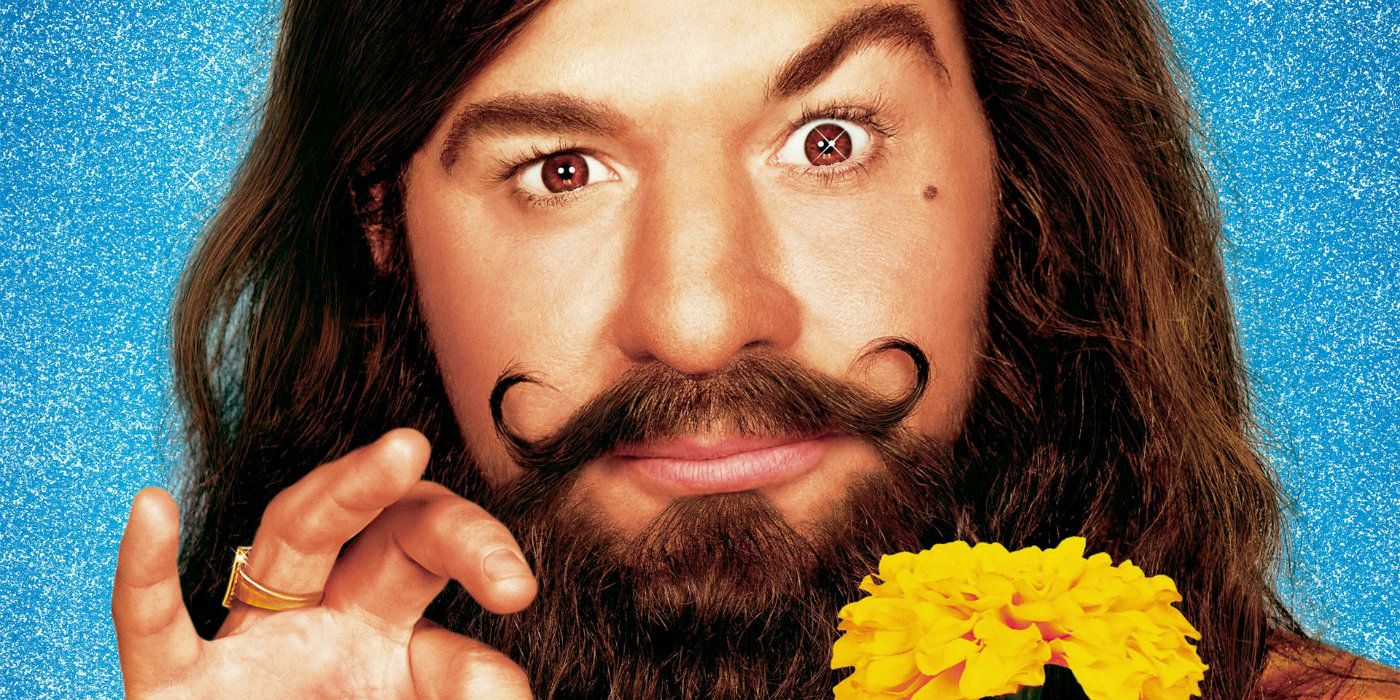
There’s little wonder why this 2008 tale of Indian spiritual expert Guru Pitka (Myers) was met with such horrendous reviews. The film, which follows Pitka on a quest to help the Toronto Maple Leafs' star player, Darren Roanoke (Romany Malco), get his life back on track, relied on infantile stereotypes and outright racist portrayals of Indian people, culture, and beliefs. As if it weren’t bad enough that Myers whitewashed himself into the role of an Indian man, the film simply wasn’t the least bit funny. The Love Guru does boast a varied and impressive cast including Ben Kingsley, Justin Timberlake, and even Deepak Chopra playing himself, but even they can’t save this objectionable wreck.
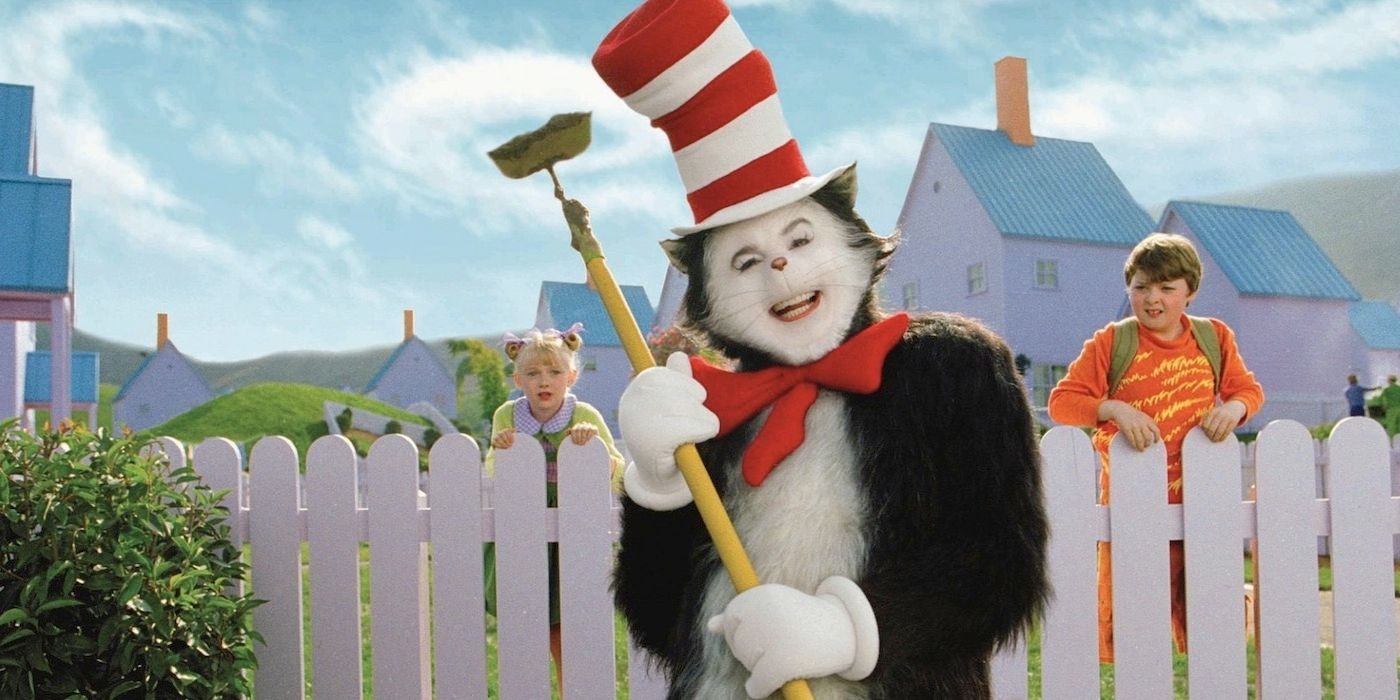
It’s hard to find anything positive to say about Myers’ attempt to bring Dr. Seuss’ beloved children’s book to life on the big screen. It’s awful from beginning to end – the sort of film that will make even Myers’ fans question why they ever found him funny in the first place. It’s clear less than thirty minutes in, when Myers’ Cat character’s naked buttocks farts into the audience’s face, that things are only going to get worse. From its non-existent plot to its downright irritating characters, The Cat in the Hat achieves the rare feat of being a children’s film that is too puerile even for children.
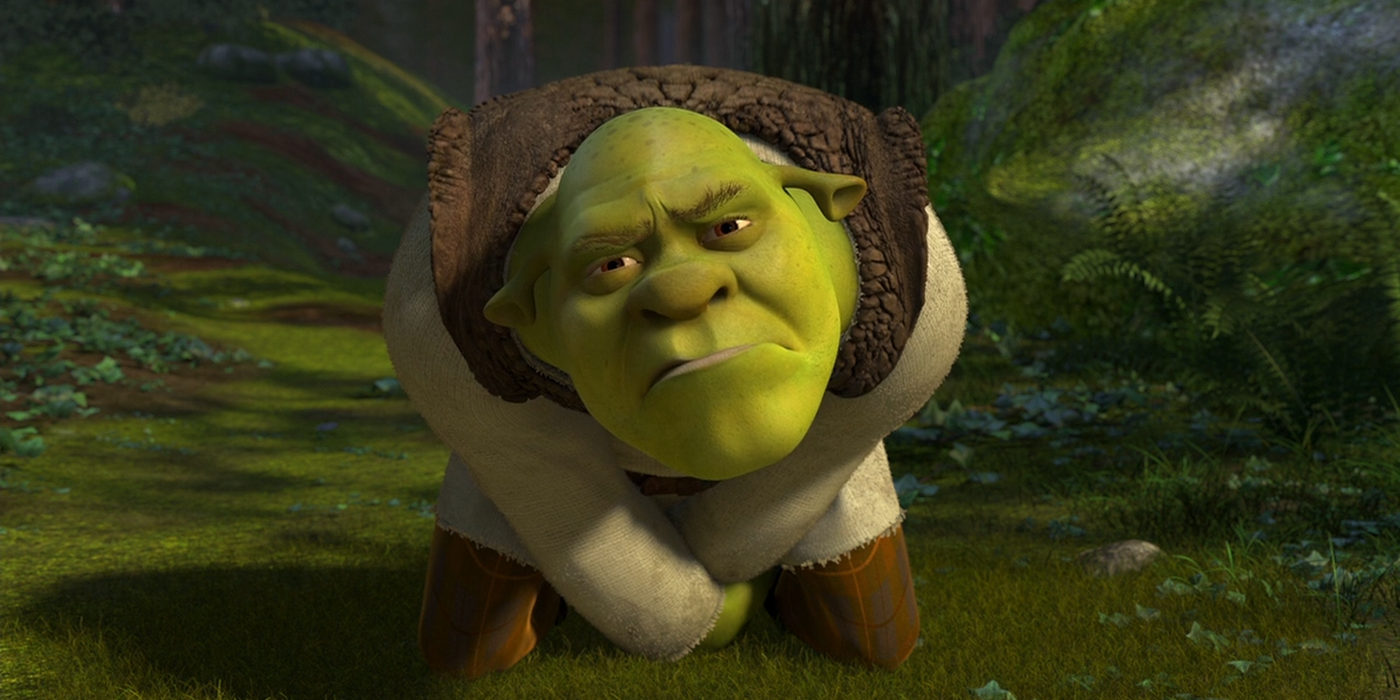
This fourth entry in the popular animated series found Myers once again voicing Shrek, as the character longs for the days of old, when he was a fearful ogre. Now a harried father of three, Shrek makes a deal with the shady Rumpelstiltskin to be feared once again, but the deal is not without its downsides. Shrek is cast into an alternate reality, in which Rumpelstiltskin rules all and everyone whom Shrek has ever known is a stranger to him. After almost a decade of Shrek films, Shrek Forever After feels slow and dull compared to its predecessors, lacking much of the punch that made those films resonate with viewers.
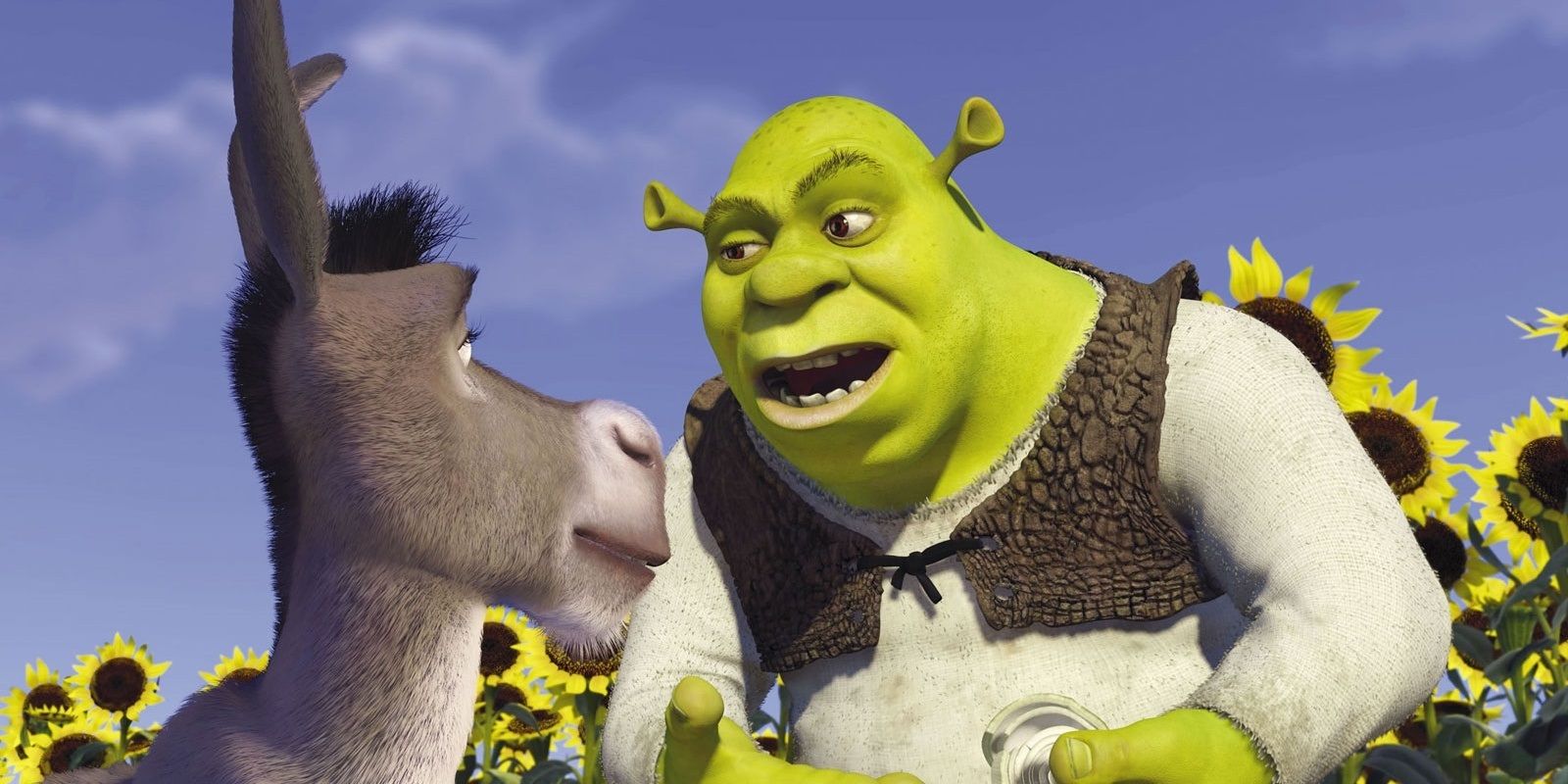
The film that kicked off Myers’ career as the voice of the eponymous cartoon ogre won an Oscar for best animated feature in 2001. While it’s far from terrible, what really holds the film back is how straightforward and simple the story is. Often the simplest story is the best one, but in this case, Shrek’s simplicity is dull by comparison to what Dreamworks later follows it up with. Meanwhile, Myers choice of voice for the character – his own personal take on a Scottish accent that he’s used repeatedly over the years - seemed to have finally found its home.
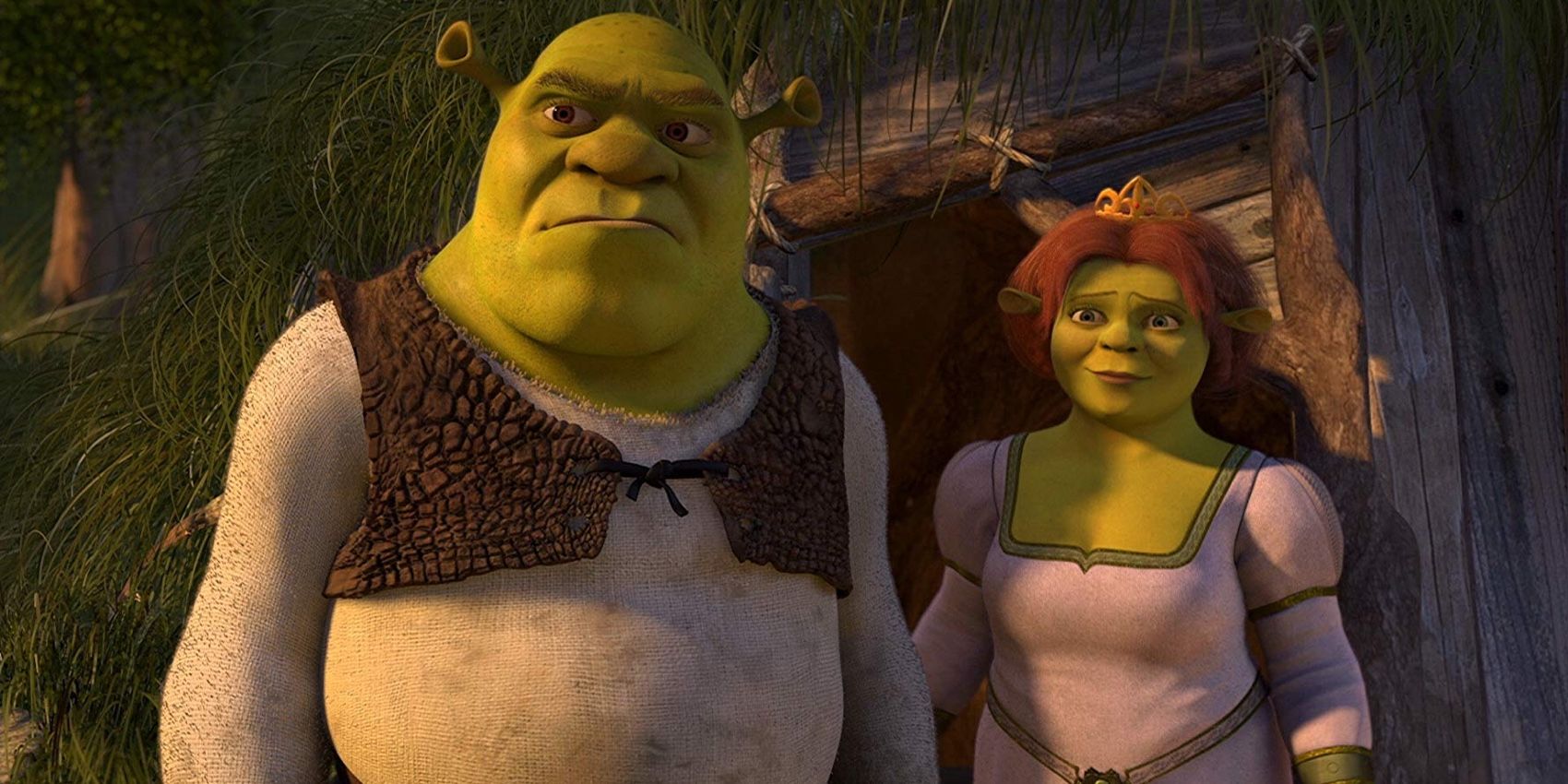
This follow-up to the wild success that met 2001’s Shrek featured newlyweds Shrek and Fiona travelling to Fiona’s hometown of Far Far Away, where her parents are king and queen. Unfortunately, Fiona’s parents are not totally supportive of her life as an ogre or her new husband. Worse still, the meddling Prince Charming, along with the Fairy Godmother, make life problematic for Shrek and his bride. It’s a more fleshed-out installment, and the introduction of Antonio Banderas as the voice of Puss in Boots is a solid addition. Myers clearly enjoys playing the character and does a great job, but Shrek 2's fairy tale universe still feels as though it’s holding back.
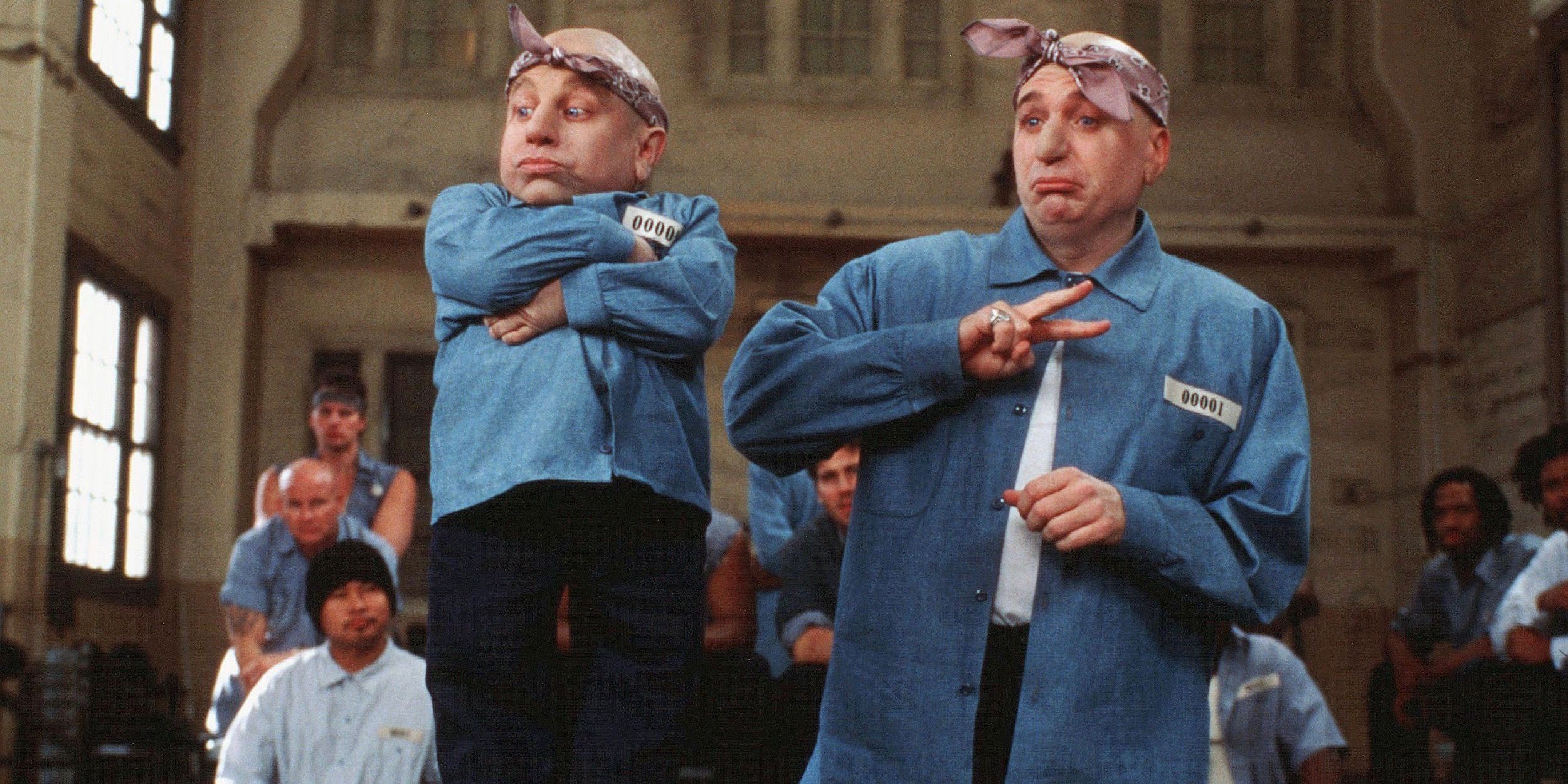
By 2002, the “Yeah-baby, Groovy, Shagadelic” shtick that Myers had introduced with 1997’s Austin Powers: International Man of Mystery had grown familiar enough. It also didn’t help that Goldmember simply rehashed many of the ideas that had already been used up in the franchise’s first and second installments. Armed with non-sequitur catchphrases and a very poor attempt at a Dutch accent, Myers’ Goldmember character was at the center of a convoluted time-travelling plot that attempted to suck out whatever life was left in the spy-comedy franchise. Goldmember was an unsatisfying end to the series for some fans (though Beyonce was a highlight), and it’s likely for this reason why there’s any demand at all today for a fourth Powers film.
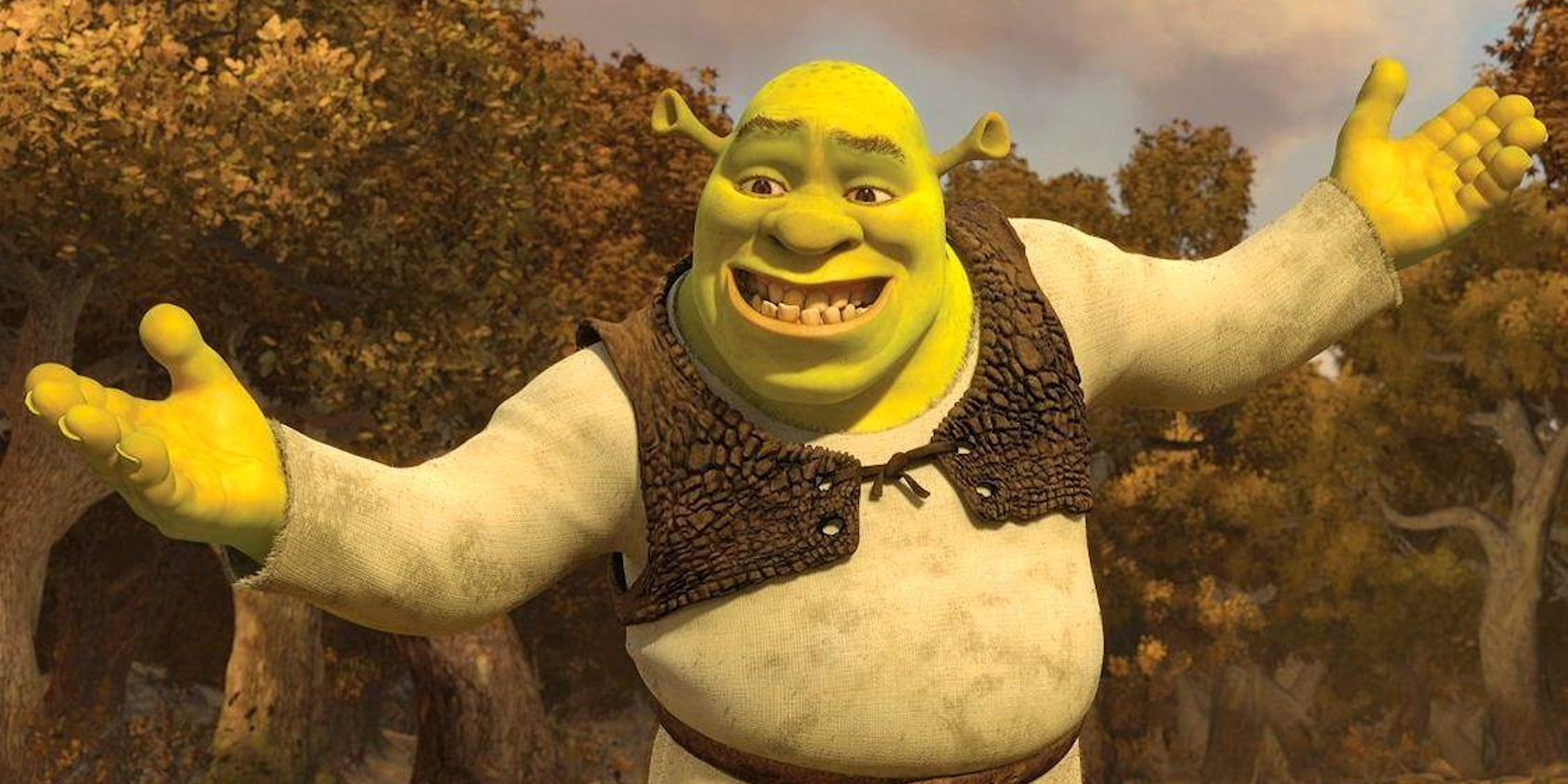
The amount of time that it took for the Shrek franchise to fully realize its world is arguably one of the biggest drawbacks of the entire series. It’s 2007’s Shrek the Third, where everything seems to come together at last. The environments are lush and active, the characters are plentiful and often hilarious, and the plot to find an heir to the king of Far Far Away is engaging. What’s more, it’s the first time in the franchise that Myers’ Shrek is focused on issues that affect others, rather than his own personal problems. This (and a subplot involving Fiona’s attempts to pull off a coup), help the film to have a connected yet vast feel to it.
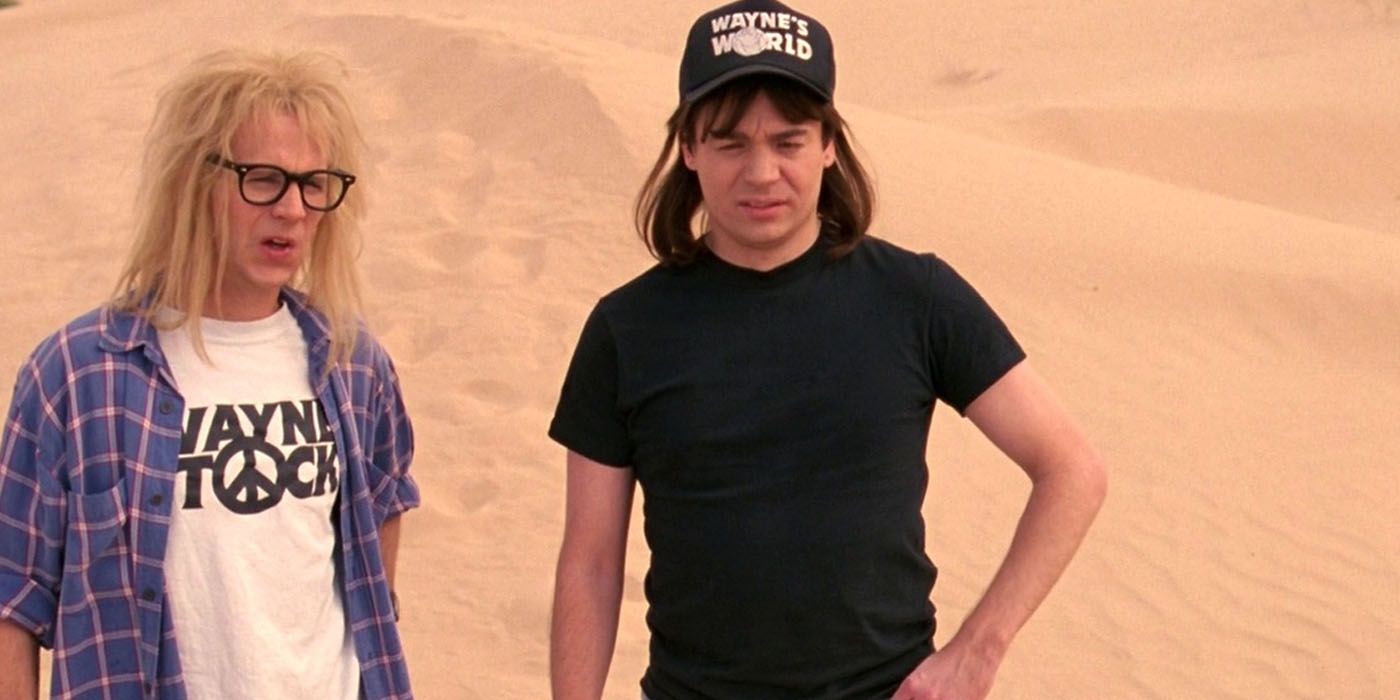
Even in 1993, Myers seemed to have already outgrown the character of Wayne Campbell, and the sequel failed to add much of anything new to what had already been achieved with Wayne’s World a year earlier. Yet at the same time, Myers also seems more aware of the character than ever – which makes sense, considering that he’d been playing Campbell in one form or another for seven years at that point. Wayne's World 2 managed to delve a little deeper into the lives of Wayne and Garth, but remained limited by its reliance on old gags. After seven years of playing Campbell, Myers would have done well to take his time with this sequel.
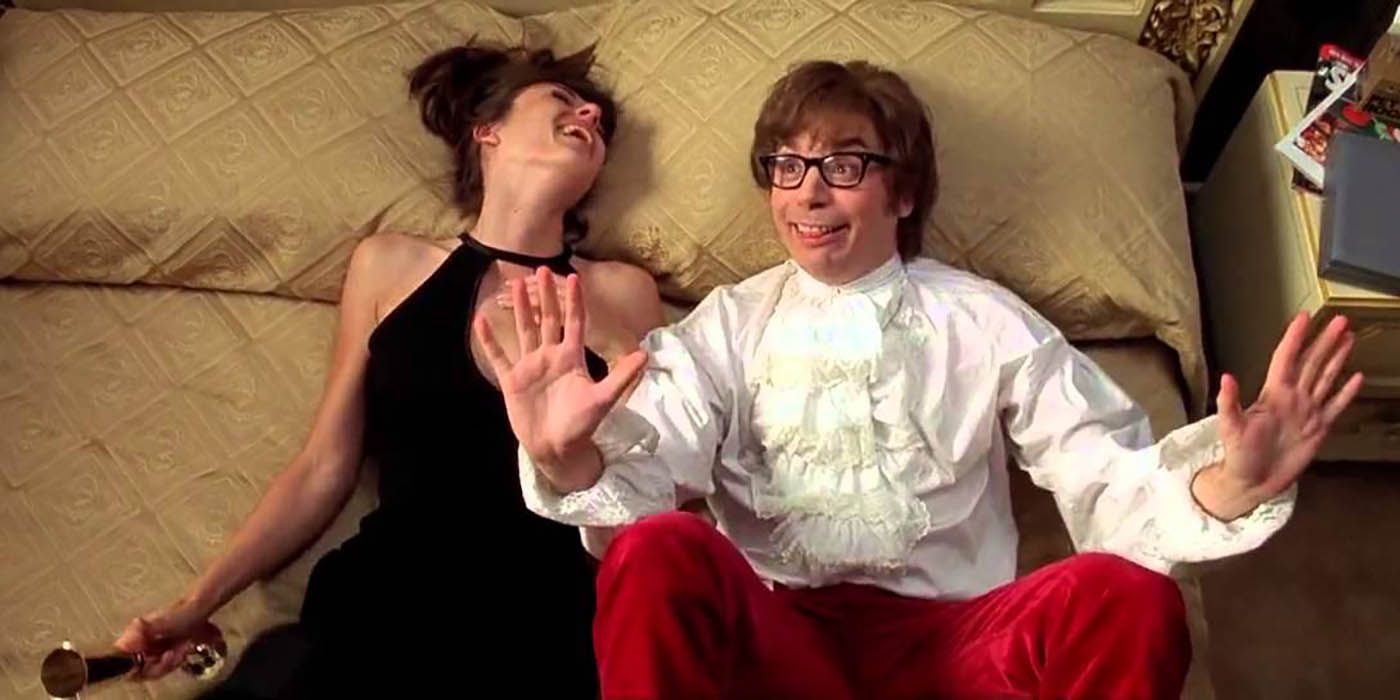
Myers hit the jackpot with this 1997 spoof on a 007-esque spy who is cryogenically frozen in the 1960s and revived in the 1990s. The laughs and subject matter were fresh, with Myers introducing a whole string of catchphrases to an adoring fanbase. Apparently, Austin Powers had so aptly captured the hammy nature of earlier Bond films that a more serious and credible tone was given to 2005’s Casino Royale, in order to avoid comparison. Watching it today, Austin Powers is still entertaining, though many of its gags are a bit dated. Nonetheless, there’s no denying its effect on comedy of the time, with Myers proving that he was more than just that guy from Wayne’s World.
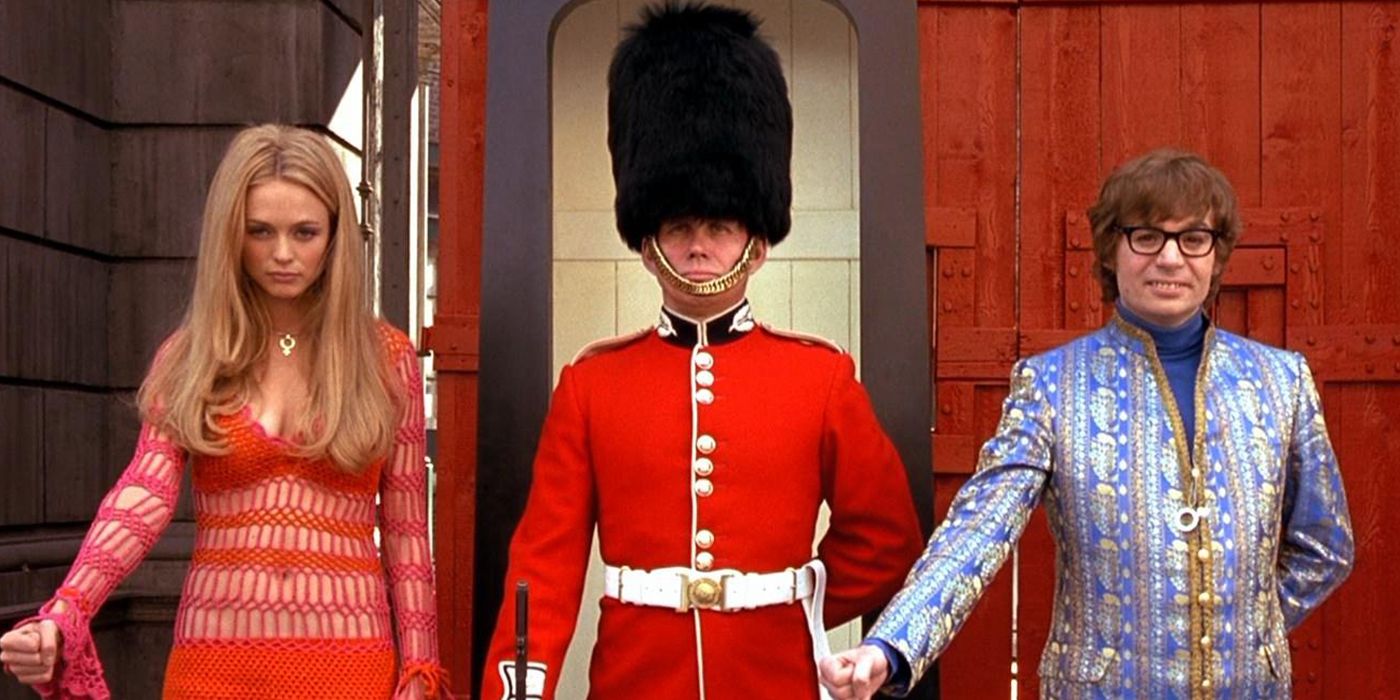
Perhaps having learned his lesson from the quick turnaround of Wayne’s World 2, Myers waited two years before returning with a sequel to his hit film. The result was a comedy that maintained the goofiness of the original film, but added much more to the concept. Introducing audiences to the laughably outrageous Fat Bastard, Myers took on three characters in what is arguably the best example of the multi-character trademark that would go on to mark his career. The Spy Who Shagged Me was the zenith of the Powers franchise, and the comedy it offered – while in some cases recycled - still proved entertaining. Myers appeared to have truly been in his element with these multiple roles, and the film remains some of the comedian’s best work.
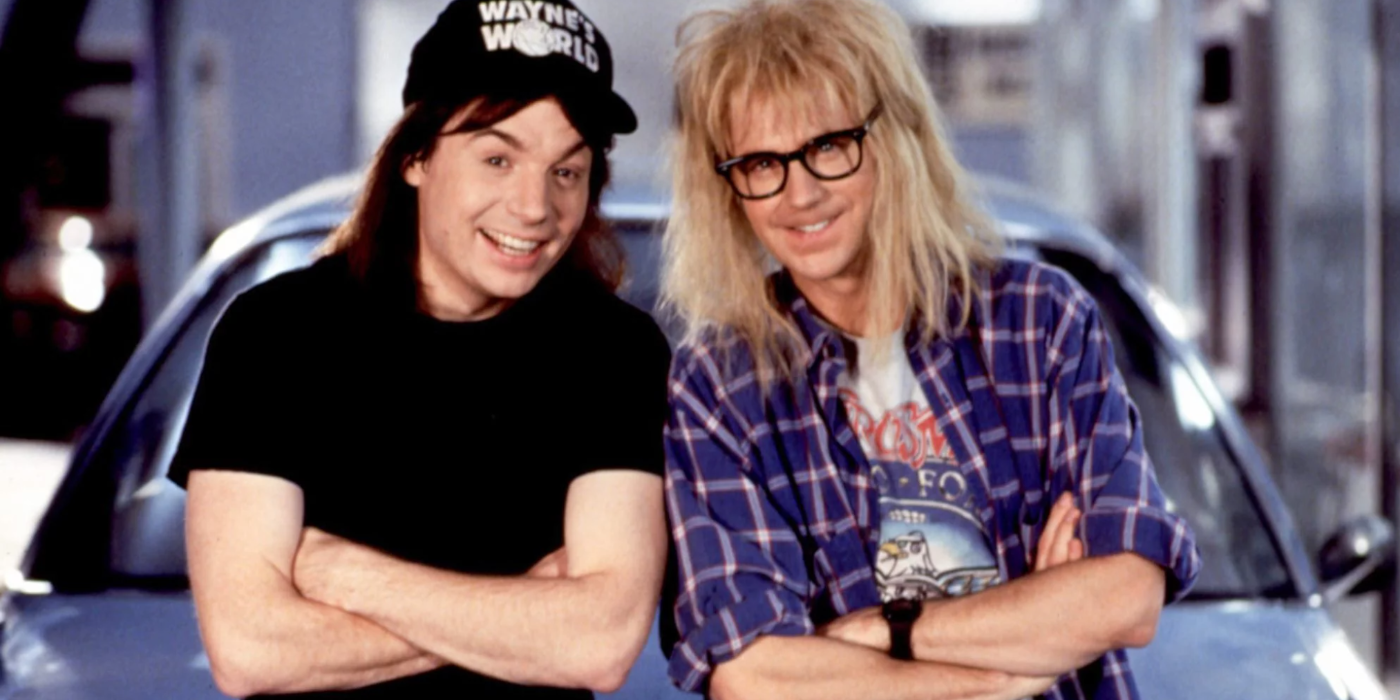
For many Myers fans, this was the single greatest film that the comedian was responsible for. An SNL sketch that spawned its own short-lived film franchise, Wayne’s World had a tremendous effect when it arrived on the big screen in 1992; among other cultural landmarks, it catapulted "Bohemian Rhapsody" to the top of the charts, 17 years after the song's debut. The film’s humor can still make audiences laugh out-loud today, nearly 30 years after its release. Part of the magic of Wayne’s World is that the original SNL sketches don’t need to be seen to appreciate the film, and Myers’ fourth wall breaking charm feels fresh. Myers also had his finger on the pulse of 90s era sarcasm, making for a perfect fit in Wayne’s World.
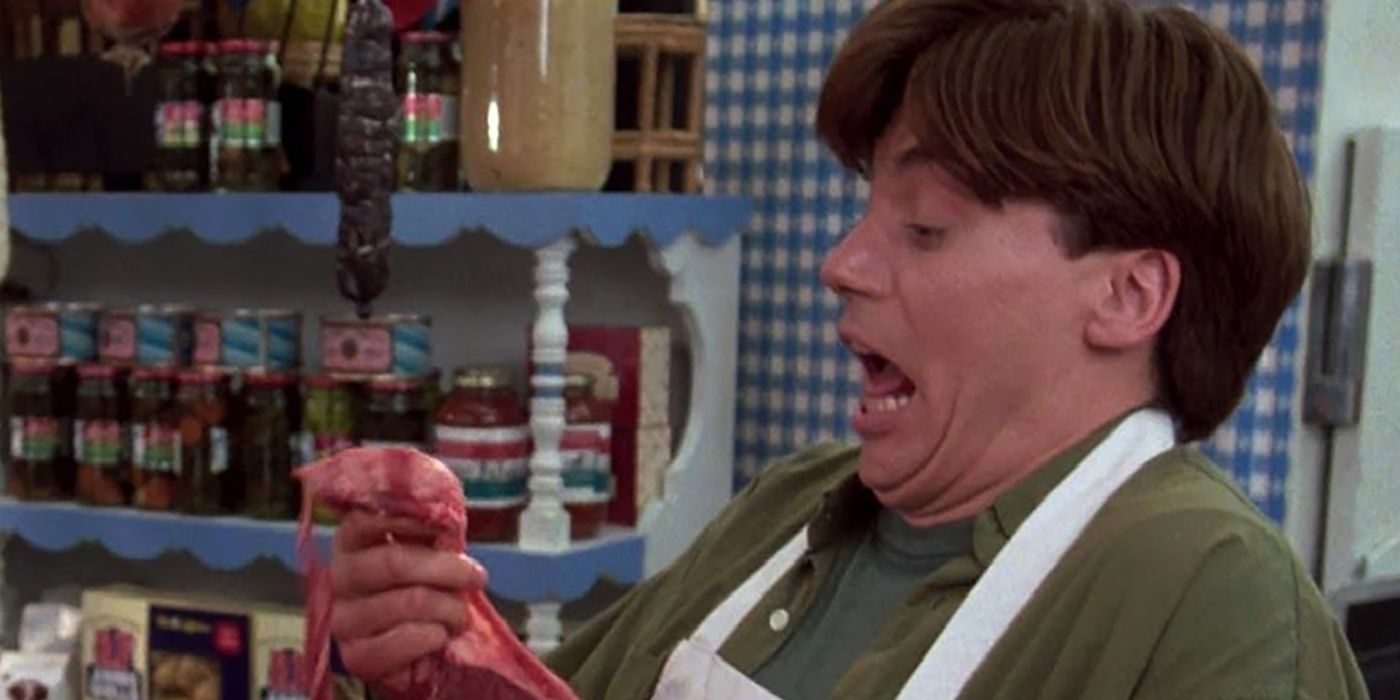
Widely overlooked thanks to its arrival during the peak of Myers’ Wayne’s World fame, So I Married an Axe Murderer is a true gem. The film stars Myers as noncommittal San Francisco-based poet Charlie, who begins to suspect that his new girlfriend (Nancy Travis) is a serial killer. It’s the first time that Myers plays a dual role, introducing his father Stuart as the surly Scottish character that he’ll rework in later years to suit the likes of Shrek and Fat Bastard. But Stuart’s involvement in the story is kept to a minimum and avoids being excessive, giving the spotlight to the protagonist. Mike Myers' work as Charlie is as subtle of a portrayal as audiences will see from Myers in a comedy, and seeing Myers as a straightforward character in a comedy is a nice change of pace when revisited today. With cameos by Steven Wright and Phil Hartman and solid comedic supporting work by Anthony LaPaglia and Alan Arkin as a cop and chief who try to make police work more exciting, So I Married an Axe Murderer finds the perfect blend between absurdity and charming rom-com. Some of the humor might come off as dated, but thankfully, the film’s mystery is engaging enough to offer something more when the laughs don’t suffice.
from ScreenRant - Feed https://ift.tt/2YYW4oS

0 Comments